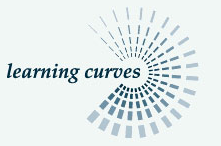Managing conflict at work is becoming an increasing challenge for employers. The number of individual employment disputes that result in employment tribunal applications continues to increase, meaning that an ability to manage conflict and ‘difficult people’, whether in the workplace or not, has be

Handling Difficult People and Managing Conflict
Aim
Managing conflict at work is becoming an increasing challenge for employers. The number of individual employment disputes that result in employment tribunal applications continues to increase, meaning that an ability to manage conflict and ‘difficult people’, whether in the workplace or not, has become an essential skill.
The overall aim of this course is to develop skills that will enable conflict problems to be turned into opportunities, and for any potentially confrontational situations to be defused and resolved.
Course Content
What is conflict and what are the potential sources, both overt and covert?
What makes everyone different and unique?
The Four Personality types, their characteristics and how these may result in creating ‘difficult people’
The 3 elements of communication and the importance of flexibility in communication style
Rapid rapport building – face to face, over the telephone and in writing
The VHF channels of communication and how to use them to speak someone else’s language
Listening skills – what’s being said, how is it being said and what’s really being said
The 3 levels of listening and why Level 1 should never be used in a conversation
Questioning skills – how to defuse a challenging situation by asking the right questions
The 9-stage model of conflict escalation
What is assertiveness and what are the benefits of being assertive?
The Assertive Sentence – the ultimate tool for dealing with confrontational situations
Reducing stress by activating personal ‘State Control’. Avoid being sucked into someone else’s negativity and attitude, and instead, choose and experience exactly how you want to feel
Action planning – pulling it all together by determining how to resolve any real-life examples of conflict and deciding what to do differently in the future as a result of attending the course.
About Us
Established in 1993, Learning Curves specialises in personal development training and coaching. Offering a unique range of programmes designed for both organisations and individuals, Learning Curves provides a ‘one stop shop’ for all your development needs.
As the founder and Managing Director of Learning Curves, Di McLanachan has over 25 years experience working with a great many clients across the UK and internationally in all aspects of business training and personal development coaching. Di is a Master Practitioner of NLP (Neuro Linguistic Programming) and best-selling author of ‘NLP for Business Excellence’. She has appeared on BBC1 and Meridian Television and was the pioneer of live, phone-in coaching on BBC Radio Solent.
Di has been a fully qualified and accredited coach since 2000 and has been Head of Corporate for the biggest coach training organisation in the UK. She writes business books for Hodder & Stoughton and specialises in helping her clients overcome self sabotage to achieve personal excellence.
Our Vision
At Learning Curves we believe that effective training and development hold the key to organisational success through personal achievement.
Our Mission
We strive to make a difference through innovative training and coaching programmes which motivate and introduce new knowledge and skills. Above all, we aim to help all our clients become the very best that they can be.
© 2025 coursetakers.com All Rights Reserved. Terms and Conditions of use | Privacy Policy